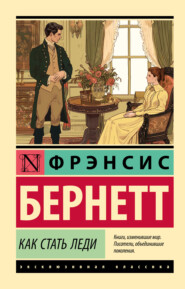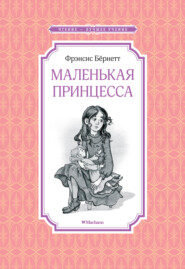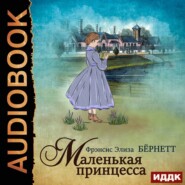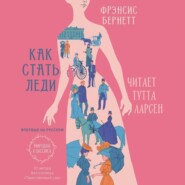По всем вопросам обращайтесь на: info@litportal.ru
(©) 2003-2024.
✖
Theo: A Sprightly Love Story
Год написания книги
2017
Настройки чтения
Размер шрифта
Высота строк
Поля
Theo: A Sprightly Love Story
Frances Burnett
Burnett Frances Hodgson
Theo: A Sprightly Love Story
CHAPTER I
PREPARING FOR A JOURNEY
A heavy curtain of yellow fog rolled and drifted over the waste of beach, and rolled and drifted over the sea, and beneath the curtain the tide was coming in at Downport, and two pair of eyes were watching it. Both pair of eyes watched it from the same place, namely, from the shabby sitting-room of the shabby residence of David North, Esq., lawyer, and both watched it without any motive, it seemed, unless that the dull gray waves and their dull moaning were not out of accord with the watchers' feelings. One pair of eyes – a youthful, discontented black pair – watched it steadily, never turning away, as their owner stood in the deep, old-fashioned window, with both elbows resting upon the broad sill; but the other pair only glanced up now and then, almost furtively, from the piece of work Miss Pamela North, spinster, held in her slender, needle-worn fingers.
There had been a long silence in the shabby sitting-room for some time – and there was not often silence there. Three rampant, strong-lunged boys, and as many talkative school-girls, made the house of David North, Esq., rather a questionable paradise. But to-day, being half-holiday, the boys were out on the beach digging miraculous sand-caves, and getting up miraculous piratical battles and excursions with the bare-legged urchins so numerous in the fishermen's huts; and Joanna and Elinor had been absent all day, so the room left to Theo and her elder sister was quiet for once.
It was Miss Pamela herself who broke the stillness. "Theo," she said, with some elder-sister-like asperity, "it appears to me that you might find something better to do than to stand with your arms folded, as you have been doing for the last half hour. There is a whole basketful of the boys' socks that need mending and – "
"Pam!" interrupted Theo, desperately, turning over her shoulder a face more like the face of some young Spanish gipsy than that of a poor English solicitor's daughter. "Pam, I should really like to know if life is ever worth having, if everybody's life is like ours, or if there are really such people as we read of in books."
"You have been reading some ridiculous novel again," said Pamela, sententiously. "If you would be a little more sensible, and less romantic, Theodora, it would be a great deal better for all of us. What have you been reading?"
The capable gipsy face turned to the window again half-impatiently.
"I have been reading nothing to-day," was the answer. "I should think you knew that – on Saturday, with everything to do, and the shopping to attend to, and mamma scolding every one because the butcher's bill can't be paid. I was reading Jane Eyre, though, last night. Did you ever read Jane Eyre, Pamela?"
"I always have too much to do in attending to my duty," said Pamela, "without wasting my time in that manner. I should never find time to read Jane Eyre in twenty years. I wish I could."
"I wish you could, too," said Theo, meditatively. "I wish there was no such thing as duty. Duty always appears to me to be the very thing we don't want to do."
"Just at present, it is your duty to attend to those socks of Ralph and Arthur's," put in Pamela, dryly. "Perhaps you had better see to it at once, as tea will be ready soon, and you will have to cut bread for the children."
The girl turned away from the window with a sigh. Her discussions on subjects of this kind always ended in the same unsatisfactory manner; and really her young life was far from being a pleasant one. As the next in age to Pamela, though so many years lay between them, a hundred petty cares fell on her girlish shoulders, and tried her patience greatly with their weight, sometimes. And in the hard family struggle for everyday necessities there was too much of commonplace reality to admit of much poetry. The wearisome battling with life's needs had left the mother, as it leaves thousands of women, haggard, careworn, and not too smooth in disposition. There was no romance about her. She had fairly forgotten her girlhood, it seemed to lie so far behind; and even the unconquerable mother-love, that gave rise to her anxieties, had a touch of hardness about it. And Pamela had caught something of the sharp, harassed spirit too. But Theo had an odd secret sympathy for Pamela, though her sister never suspected it. Pamela had a love-story, and in Theo's eyes this one touch of forlorn romance was the silver lining to many clouds. Ten years ago, when Pamela had been a pretty girl, she had had a lover – poor Arthur Brunwalde – Theo always mentally designated him; and only a week before her wedding-day, death had ended her love-story forever. Poor Pamela! was Theo's thought: to have loved like Jane Eyre, and Agnes Wickfield, and Lord Bacon, and to have been so near release from the bread-and-butter cutting, and squabbling, and then to have lost all. Poor Pamela, indeed! So the lovely, impulsive, romance-loving younger sister cherished an odd interest in Pamela's thin, sharp face, and unsympathizing voice, and in picturing the sad romance of her youth, was always secretly regardful of the past in her trials of the present.
As she turned over the socks in the basket, she glanced up now and then at Pamela's face, which was bent over her work. It had been a pretty face, but now there were faint lines upon it here and there; the features once delicate were sharpened, the blue eyes were faded, and the blonde hair faded also. It was a face whose youth had been its beauty, and its youth had fled with Pamela North's happiness. Her life had ended in its prime; nay, not ended, for the completion had never come – it was to be a work unfinished till its close. Poor Arthur Brunwalde!
A few more silent stitches, and then the work slipped from Theo's fingers into her lap, and she lifted her big, inconsistent eyes again.
"Pam," she said, "were you ever at Lady Throckmorton's?"
A faint color showed itself on Pamela's faded face.
"Yes," she answered, sharply, "I was once. What nonsense is running in your mind now, for goodness sake?"
Theo flushed up to her forehead, no half flush; she actually glowed all over, her eyes catching a light where her delicate dark skin caught the dusky red.
"Don't be cross, Pam," she said, appealingly. "I can't help it. The letter she sent to mamma made me think of it. Oh, Pam! if I could only have accepted the invitation."
"But you can't," said Pam, concisely. "So you may as well let the matter rest."
"I know I can't," Theo returned, her quaint resignation telling its own story of previous disappointments. "I have nothing to wear, you know, and, of course, I couldn't go there, of all places in the world, without something nice."
There was another silence after this. Theo had gone back to her work with a sigh, and Miss Pamela was stitching industriously. She was never idle, and always taciturn, and on this occasion her mind was fully occupied. She was thinking of Lady Throckmorton's invitation too.
Her ladyship was a half-sister of their father's, and from the height of her grandeur magnanimously patronizing now and then. It was during her one visit to London, under this relative's patronage, that Pamela had met Arthur Brunwalde, and it was through her that the match had been made. But when Arthur died, and she found that Pamela was fixed in her determination to make a sacrifice of her youth on the altar of her dead love, Lady Throckmorton lost patience. It was absurd, she said; Mr. North could not afford it, and if Pamela persisted, she would wash her hands of the whole affair. But Pamela was immovable, and, accordingly, had never seen her patroness since. It so happened, however, that her ladyship had suddenly recollected Theo, whose gipsy face had once struck her fancy, and the result of the sudden recollection was another invitation. Her letter had arrived that very morning at breakfast time, and had caused some sensation. A visit to London, under such auspices, was more than the most sanguine had ever dared to dream of.
"I wish I was Theo," Joanna had grumbled. "She always gets the lion's share of everything, because Elin and I are a bit younger than she is."
And Theo had glowed up to her soft, innocent eyes, and neglected the bread-and-butter cutting, to awaken a moment later to sudden despair.
"But – but I have nothing fit to wear, mamma," she said, in anguished tones.
"No," answered Mrs. North, two or three new lines showing themselves on her harassed forehead; "and we can't afford to buy anything. You can't go, Theo."
And so the castle which had towered so promisingly in the air a moment ago, was dashed to the dust with one touch of shabby gentility's tarnished wand. The glow died out of Theo's face, and she went back to her bread-and-butter cutting with a soreness of disappointment which was, nevertheless, not without its own desperate resignation. This was why she had watched the tide come in with such a forlorn sense of sympathy with the dull sweep of the gray waves, and their dull, creeping moan; this was why she had been rash enough to hope for a crumb of sympathy even from Pamela; and this also was why, in despairing of gaining it, she bent herself to her unthankful labor again, and patched and darned until the tide had swept back again under the curtain of fog, and there was no more light, even for the stern taskmaster, poverty.
The silence was effectually broken in upon after this. As soon as the street lamps began to twinkle in the murkiness outside, the boys made their appearance – Ralph, and Arthur, and Jack, all hungry, and dishevelled, and of course, all in an uproar. They had dug a cave on the shore, and played smugglers all the evening; and one fellow had brought out a real cutlass and a real pistol, that belonged to his father, and they had played fighting the coast-guard, and they were as hungry as the dickens now; and was tea ready, and wouldn't Pam let them have some strawberry-jam?
Pamela laid her work aside, and went out of the room, and then Ralph, who was in the habit of patronizing Theo occasionally, came to his favorite corner and sat down, his rough hands clasped round his knees, boy-fashion.
"I say, Theo," he began. "I wonder how much it would cost a fellow to buy a cutlass – a real one?"
"I don't know," Theo answered, indifferently. "I never bought a cutlass, Ralph."
"No, of course you never did. What would a girl want with a cutlass? But couldn't you guess, now – just give a guess. Would it cost a pound?"
"I daresay it would," Theo managed to reply, with a decent show of interest. "A good one."
"Well, I'd want a good one," said Ralph, meditatively; "but if it would cost a pound, I shall never have one. I say, Theo, we never do get what we want at this house, do we?"
"Not often," said Theo, a trifle bitterly.
Ralph looked up at her.
"Look here," he said, sagaciously. "I know what you are thinking of. I can tell by your eyes. You're thinking about having to stay at home from Lady Throckmorton's, and it is a shame too. If you are a girl, you could have enjoyed yourself in your girl's way. I'd rather go to their place in Lincolnshire, where old Throckmorton does his hunting. The governor says that a fellow that was a good shot could bag as much game as he could carry, and it wouldn't take long to shoot either. I can aim first rate with a bow and arrow. But that isn't what you want, is it? You want to go to London, and have lots of dresses and things. Girls always do; but that isn't my style."
"Ah, Ralph!" Theo broke out, her eyes filling all at once. "I wish you wouldn't! I can't bear to hear it. Just think of how I might have enjoyed myself, and then to think that – that I can't go, and that I shall never live any other life than this!"
Ralph opened his round Saxon eyes, in a manner slightly expressive of general dissatisfaction.
"Why, you're crying!" he said. "Confound crying. You know I don't cry because I can't go to Lincolnshire. You girls are always crying about something. Joanna and Elin cry if their shoes are shabby or their gloves burst out. A fellow never thinks of crying. If he can't get the thing he wants, he pitches in, and does without, or else makes something out of wood that looks like it."
Theo said no more. A summons from the kitchen came to her just then. Pam was busy with the tea-service, and the boys were hungry – so she must go and help.
Pamela glanced up at her sharply as she entered, but she did not speak. She had borne disappointments often enough, and had lived over them to become seemingly a trifle callous to their bitterness in others, and, as I have said, she was prone to silence. But it may be that she was not so callous after all, for at least Theo fancied that her occasional speeches were less sharp, and certainly she uttered no reproof to-night. She was grave enough, however, and even more silent than usual, as she poured out the tea for the boys. A shadow of thoughtfulness rested on her thin sharp face, and the faint, growing lines were almost deepened; but she did not "snap," as the children called it; and Theo was thankful for the change.
It was not late when the children went to bed, but it was very late when Pamela followed them; and when she went up-stairs, she was so preoccupied as to appear almost absent-minded. She went to her room and locked the door, after her usual fashion; but that she did not retire was evident to one pair of listening ears at least. In the adjoining bedroom, where the girls slept, Theo lay awake, and could hear her every movement. She was walking to and fro, and the sounds of opening drawers and turned keys came through the wall every moment. Pamela had unaccountable secret ways, Joanna always said. Her room was a sanctuary, which the boldest did not dare to violate lightly. There were closets and boxes there, whose contents were reserved for her own eyes alone, and questions regarding them seldom met with any satisfactory answer. She was turning over these possessions to-night, Theo judged, from the sounds proceeding from her chamber. To be truthful, Theo had some curiosity about the matter, though she never asked any questions. The innate delicacy which prompted her to reverence the forlorn aroma of long-withered romance about the narrow life had restrained her. But to-night she was so wide-awake, and Joanna and Elin were so fast asleep, that every movement forcing itself upon her ear, made her more wide-awake still. The turning of keys and unlocking of drawers roused her to a whimsical meditative wonder. Poor Pam! What dead memories and coffined hopes was she bringing out to the dim light of her solitary candle? Was it possible that she ever cried over them a little when there was no one to see her relaxing mood? Poor Pam! Theo sighed again, and was just deciding to go to sleep, if possible, when she heard a door open, which was surely Pamela's, and feet crossing the narrow corridor, which were surely Pamela's own, and then a sharp yet soft tap on the door, and a voice which could have been no other than Pamela's, under any possibility.
"Theo!" it said, "I want you for a short time. Get up."
Theo was out upon the floor, and had opened the door in an instant, wider awake than ever.
Frances Burnett
Burnett Frances Hodgson
Theo: A Sprightly Love Story
CHAPTER I
PREPARING FOR A JOURNEY
A heavy curtain of yellow fog rolled and drifted over the waste of beach, and rolled and drifted over the sea, and beneath the curtain the tide was coming in at Downport, and two pair of eyes were watching it. Both pair of eyes watched it from the same place, namely, from the shabby sitting-room of the shabby residence of David North, Esq., lawyer, and both watched it without any motive, it seemed, unless that the dull gray waves and their dull moaning were not out of accord with the watchers' feelings. One pair of eyes – a youthful, discontented black pair – watched it steadily, never turning away, as their owner stood in the deep, old-fashioned window, with both elbows resting upon the broad sill; but the other pair only glanced up now and then, almost furtively, from the piece of work Miss Pamela North, spinster, held in her slender, needle-worn fingers.
There had been a long silence in the shabby sitting-room for some time – and there was not often silence there. Three rampant, strong-lunged boys, and as many talkative school-girls, made the house of David North, Esq., rather a questionable paradise. But to-day, being half-holiday, the boys were out on the beach digging miraculous sand-caves, and getting up miraculous piratical battles and excursions with the bare-legged urchins so numerous in the fishermen's huts; and Joanna and Elinor had been absent all day, so the room left to Theo and her elder sister was quiet for once.
It was Miss Pamela herself who broke the stillness. "Theo," she said, with some elder-sister-like asperity, "it appears to me that you might find something better to do than to stand with your arms folded, as you have been doing for the last half hour. There is a whole basketful of the boys' socks that need mending and – "
"Pam!" interrupted Theo, desperately, turning over her shoulder a face more like the face of some young Spanish gipsy than that of a poor English solicitor's daughter. "Pam, I should really like to know if life is ever worth having, if everybody's life is like ours, or if there are really such people as we read of in books."
"You have been reading some ridiculous novel again," said Pamela, sententiously. "If you would be a little more sensible, and less romantic, Theodora, it would be a great deal better for all of us. What have you been reading?"
The capable gipsy face turned to the window again half-impatiently.
"I have been reading nothing to-day," was the answer. "I should think you knew that – on Saturday, with everything to do, and the shopping to attend to, and mamma scolding every one because the butcher's bill can't be paid. I was reading Jane Eyre, though, last night. Did you ever read Jane Eyre, Pamela?"
"I always have too much to do in attending to my duty," said Pamela, "without wasting my time in that manner. I should never find time to read Jane Eyre in twenty years. I wish I could."
"I wish you could, too," said Theo, meditatively. "I wish there was no such thing as duty. Duty always appears to me to be the very thing we don't want to do."
"Just at present, it is your duty to attend to those socks of Ralph and Arthur's," put in Pamela, dryly. "Perhaps you had better see to it at once, as tea will be ready soon, and you will have to cut bread for the children."
The girl turned away from the window with a sigh. Her discussions on subjects of this kind always ended in the same unsatisfactory manner; and really her young life was far from being a pleasant one. As the next in age to Pamela, though so many years lay between them, a hundred petty cares fell on her girlish shoulders, and tried her patience greatly with their weight, sometimes. And in the hard family struggle for everyday necessities there was too much of commonplace reality to admit of much poetry. The wearisome battling with life's needs had left the mother, as it leaves thousands of women, haggard, careworn, and not too smooth in disposition. There was no romance about her. She had fairly forgotten her girlhood, it seemed to lie so far behind; and even the unconquerable mother-love, that gave rise to her anxieties, had a touch of hardness about it. And Pamela had caught something of the sharp, harassed spirit too. But Theo had an odd secret sympathy for Pamela, though her sister never suspected it. Pamela had a love-story, and in Theo's eyes this one touch of forlorn romance was the silver lining to many clouds. Ten years ago, when Pamela had been a pretty girl, she had had a lover – poor Arthur Brunwalde – Theo always mentally designated him; and only a week before her wedding-day, death had ended her love-story forever. Poor Pamela! was Theo's thought: to have loved like Jane Eyre, and Agnes Wickfield, and Lord Bacon, and to have been so near release from the bread-and-butter cutting, and squabbling, and then to have lost all. Poor Pamela, indeed! So the lovely, impulsive, romance-loving younger sister cherished an odd interest in Pamela's thin, sharp face, and unsympathizing voice, and in picturing the sad romance of her youth, was always secretly regardful of the past in her trials of the present.
As she turned over the socks in the basket, she glanced up now and then at Pamela's face, which was bent over her work. It had been a pretty face, but now there were faint lines upon it here and there; the features once delicate were sharpened, the blue eyes were faded, and the blonde hair faded also. It was a face whose youth had been its beauty, and its youth had fled with Pamela North's happiness. Her life had ended in its prime; nay, not ended, for the completion had never come – it was to be a work unfinished till its close. Poor Arthur Brunwalde!
A few more silent stitches, and then the work slipped from Theo's fingers into her lap, and she lifted her big, inconsistent eyes again.
"Pam," she said, "were you ever at Lady Throckmorton's?"
A faint color showed itself on Pamela's faded face.
"Yes," she answered, sharply, "I was once. What nonsense is running in your mind now, for goodness sake?"
Theo flushed up to her forehead, no half flush; she actually glowed all over, her eyes catching a light where her delicate dark skin caught the dusky red.
"Don't be cross, Pam," she said, appealingly. "I can't help it. The letter she sent to mamma made me think of it. Oh, Pam! if I could only have accepted the invitation."
"But you can't," said Pam, concisely. "So you may as well let the matter rest."
"I know I can't," Theo returned, her quaint resignation telling its own story of previous disappointments. "I have nothing to wear, you know, and, of course, I couldn't go there, of all places in the world, without something nice."
There was another silence after this. Theo had gone back to her work with a sigh, and Miss Pamela was stitching industriously. She was never idle, and always taciturn, and on this occasion her mind was fully occupied. She was thinking of Lady Throckmorton's invitation too.
Her ladyship was a half-sister of their father's, and from the height of her grandeur magnanimously patronizing now and then. It was during her one visit to London, under this relative's patronage, that Pamela had met Arthur Brunwalde, and it was through her that the match had been made. But when Arthur died, and she found that Pamela was fixed in her determination to make a sacrifice of her youth on the altar of her dead love, Lady Throckmorton lost patience. It was absurd, she said; Mr. North could not afford it, and if Pamela persisted, she would wash her hands of the whole affair. But Pamela was immovable, and, accordingly, had never seen her patroness since. It so happened, however, that her ladyship had suddenly recollected Theo, whose gipsy face had once struck her fancy, and the result of the sudden recollection was another invitation. Her letter had arrived that very morning at breakfast time, and had caused some sensation. A visit to London, under such auspices, was more than the most sanguine had ever dared to dream of.
"I wish I was Theo," Joanna had grumbled. "She always gets the lion's share of everything, because Elin and I are a bit younger than she is."
And Theo had glowed up to her soft, innocent eyes, and neglected the bread-and-butter cutting, to awaken a moment later to sudden despair.
"But – but I have nothing fit to wear, mamma," she said, in anguished tones.
"No," answered Mrs. North, two or three new lines showing themselves on her harassed forehead; "and we can't afford to buy anything. You can't go, Theo."
And so the castle which had towered so promisingly in the air a moment ago, was dashed to the dust with one touch of shabby gentility's tarnished wand. The glow died out of Theo's face, and she went back to her bread-and-butter cutting with a soreness of disappointment which was, nevertheless, not without its own desperate resignation. This was why she had watched the tide come in with such a forlorn sense of sympathy with the dull sweep of the gray waves, and their dull, creeping moan; this was why she had been rash enough to hope for a crumb of sympathy even from Pamela; and this also was why, in despairing of gaining it, she bent herself to her unthankful labor again, and patched and darned until the tide had swept back again under the curtain of fog, and there was no more light, even for the stern taskmaster, poverty.
The silence was effectually broken in upon after this. As soon as the street lamps began to twinkle in the murkiness outside, the boys made their appearance – Ralph, and Arthur, and Jack, all hungry, and dishevelled, and of course, all in an uproar. They had dug a cave on the shore, and played smugglers all the evening; and one fellow had brought out a real cutlass and a real pistol, that belonged to his father, and they had played fighting the coast-guard, and they were as hungry as the dickens now; and was tea ready, and wouldn't Pam let them have some strawberry-jam?
Pamela laid her work aside, and went out of the room, and then Ralph, who was in the habit of patronizing Theo occasionally, came to his favorite corner and sat down, his rough hands clasped round his knees, boy-fashion.
"I say, Theo," he began. "I wonder how much it would cost a fellow to buy a cutlass – a real one?"
"I don't know," Theo answered, indifferently. "I never bought a cutlass, Ralph."
"No, of course you never did. What would a girl want with a cutlass? But couldn't you guess, now – just give a guess. Would it cost a pound?"
"I daresay it would," Theo managed to reply, with a decent show of interest. "A good one."
"Well, I'd want a good one," said Ralph, meditatively; "but if it would cost a pound, I shall never have one. I say, Theo, we never do get what we want at this house, do we?"
"Not often," said Theo, a trifle bitterly.
Ralph looked up at her.
"Look here," he said, sagaciously. "I know what you are thinking of. I can tell by your eyes. You're thinking about having to stay at home from Lady Throckmorton's, and it is a shame too. If you are a girl, you could have enjoyed yourself in your girl's way. I'd rather go to their place in Lincolnshire, where old Throckmorton does his hunting. The governor says that a fellow that was a good shot could bag as much game as he could carry, and it wouldn't take long to shoot either. I can aim first rate with a bow and arrow. But that isn't what you want, is it? You want to go to London, and have lots of dresses and things. Girls always do; but that isn't my style."
"Ah, Ralph!" Theo broke out, her eyes filling all at once. "I wish you wouldn't! I can't bear to hear it. Just think of how I might have enjoyed myself, and then to think that – that I can't go, and that I shall never live any other life than this!"
Ralph opened his round Saxon eyes, in a manner slightly expressive of general dissatisfaction.
"Why, you're crying!" he said. "Confound crying. You know I don't cry because I can't go to Lincolnshire. You girls are always crying about something. Joanna and Elin cry if their shoes are shabby or their gloves burst out. A fellow never thinks of crying. If he can't get the thing he wants, he pitches in, and does without, or else makes something out of wood that looks like it."
Theo said no more. A summons from the kitchen came to her just then. Pam was busy with the tea-service, and the boys were hungry – so she must go and help.
Pamela glanced up at her sharply as she entered, but she did not speak. She had borne disappointments often enough, and had lived over them to become seemingly a trifle callous to their bitterness in others, and, as I have said, she was prone to silence. But it may be that she was not so callous after all, for at least Theo fancied that her occasional speeches were less sharp, and certainly she uttered no reproof to-night. She was grave enough, however, and even more silent than usual, as she poured out the tea for the boys. A shadow of thoughtfulness rested on her thin sharp face, and the faint, growing lines were almost deepened; but she did not "snap," as the children called it; and Theo was thankful for the change.
It was not late when the children went to bed, but it was very late when Pamela followed them; and when she went up-stairs, she was so preoccupied as to appear almost absent-minded. She went to her room and locked the door, after her usual fashion; but that she did not retire was evident to one pair of listening ears at least. In the adjoining bedroom, where the girls slept, Theo lay awake, and could hear her every movement. She was walking to and fro, and the sounds of opening drawers and turned keys came through the wall every moment. Pamela had unaccountable secret ways, Joanna always said. Her room was a sanctuary, which the boldest did not dare to violate lightly. There were closets and boxes there, whose contents were reserved for her own eyes alone, and questions regarding them seldom met with any satisfactory answer. She was turning over these possessions to-night, Theo judged, from the sounds proceeding from her chamber. To be truthful, Theo had some curiosity about the matter, though she never asked any questions. The innate delicacy which prompted her to reverence the forlorn aroma of long-withered romance about the narrow life had restrained her. But to-night she was so wide-awake, and Joanna and Elin were so fast asleep, that every movement forcing itself upon her ear, made her more wide-awake still. The turning of keys and unlocking of drawers roused her to a whimsical meditative wonder. Poor Pam! What dead memories and coffined hopes was she bringing out to the dim light of her solitary candle? Was it possible that she ever cried over them a little when there was no one to see her relaxing mood? Poor Pam! Theo sighed again, and was just deciding to go to sleep, if possible, when she heard a door open, which was surely Pamela's, and feet crossing the narrow corridor, which were surely Pamela's own, and then a sharp yet soft tap on the door, and a voice which could have been no other than Pamela's, under any possibility.
"Theo!" it said, "I want you for a short time. Get up."
Theo was out upon the floor, and had opened the door in an instant, wider awake than ever.

















